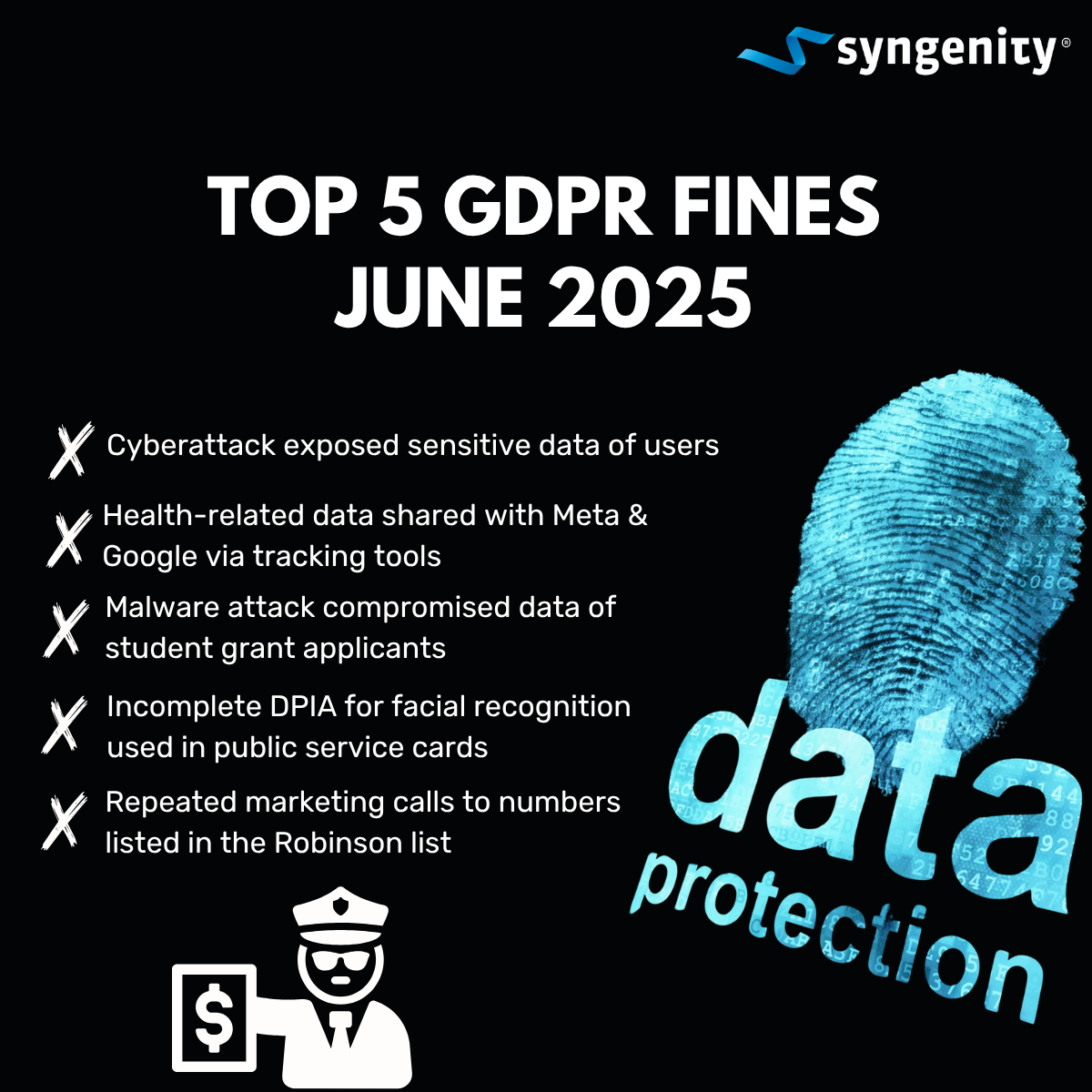Data Breaches & Privacy Violations Across Europe: A Wake-Up Call for Cybersecurity and Governance
In recent months, several data breaches in Europe have shown how serious the consequences of a lack of cyber security and inadequate governance can be. The organizations affected range from international companies to public institutions. The breaches involve sensitive data such as health information, biometrics and personal data. The reactions of data protection authorities have been clear – with some imposing heavy fines and clear calls for improvements.
One particularly high-profile case was the cyber attack on 23andMe in the UK. The data of around 150,000 users was compromised. The platform had not implemented multi-factor authentication, used weak password policies and was late in informing those affected. The British Data Protection Authority imposed a fine of 2.74 million euros.
In Ireland, the city of Dublin was the victim of a malware attack that affected the data of around 13,000 applicants for student grants. The city failed to inform those affected in good time and did not communicate directly. The result was a fine of 125,000 euros.
Another serious case occurred in Finland. An online pharmacy in Turku had passed on health-related data to Meta and Google via tracking tools such as pixels and cookies – without valid user consent. The Finnish Data Protection Authority deemed this to be particularly serious and imposed a fine of 1.1 million euros.
The Irish Ministry of Social Affairs was also targeted by the data protection authority. It used facial recognition technology in the context of public service cards without carrying out a full data protection impact assessment (DPIA). The authority saw this as a clear breach of the GDPR and imposed a fine of 550,000 euros.
In Spain, a telecommunications provider was sanctioned because it continued to make unsolicited marketing calls despite being on the Robinson list. The lack of legal basis and consent led to a fine of 70,000 euros.
These cases clearly show how quickly data protection gaps can lead to considerable financial and reputational damage. The GDPR is not a toothless tiger – it is actively enforced and violations are consistently sanctioned.
Organizations must ensure that their IT infrastructure complies with current security standards. This includes strong password policies, regular penetration tests, encryption and, above all, the implementation of multi-factor authentication. Technical and organizational measures (TOMs) are essential to effectively protect data.
The GDPR stipulates that data breaches must be reported within 72 hours. Delayed reporting can not only lead to higher fines, but can also permanently damage the trust of those affected. Prompt and transparent communication is therefore essential.
When processing particularly sensitive data – such as biometric or health-related information – a data protection impact assessment is absolutely essential. It helps to identify risks at an early stage and define suitable protective measures. A robust DPIA is not just a formal step, but a key instrument for minimizing risk.
The integration of third-party tools such as Google Analytics or Meta Pixel into health-related websites is highly risky. Without the explicit consent of the user and transparent information about data processing, there is a risk of severe penalties. Particular caution is required in the health sector.
The Robinson list is a clear signal: “I don’t want any advertising.” Companies that ignore this list or do not obtain valid consent are acting unlawfully. The GDPR requires clear, voluntary and informed consent. Respect for opt-out lists and valid consent in marketing are therefore essential.
Data protection is not just a legal obligation, but a central component of modern corporate governance. Good governance means understanding data protection and information security as strategic issues – not as a chore. Transparency creates trust. Organizations that deal openly with data protection, provide clear information and communicate transparently in the event of incidents gain the trust of their customers and stakeholders.
Employees are often the weakest link in the security chain. Regular training on data protection, phishing prevention and the secure handling of data is essential. Data protection must be anchored in the corporate culture.
“Privacy by design” and “privacy by default” are not just buzzwords, but principles that must be integrated into technical systems and processes from the outset. Data protection must not be added later, but must be considered from the outset.
The cases mentioned are not isolated incidents, but symptoms of a deeper problem: a lack of prioritization of data protection and cybersecurity. The GDPR provides clear guidelines – but they will only be effective if organizations take them seriously and actively implement them.
Whether health data, biometric features or advertising consent: Data protection is not optional. Those who neglect governance not only risk fines, but also the trust of their customers and the integrity of their brand.







